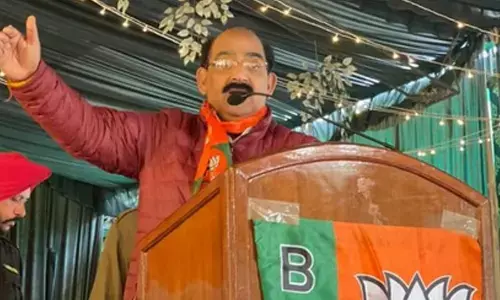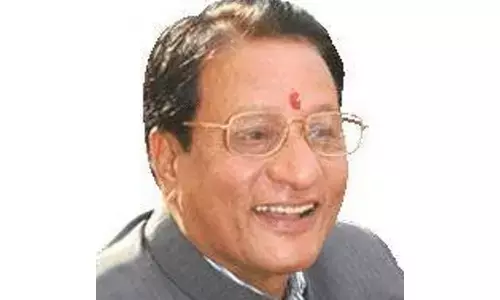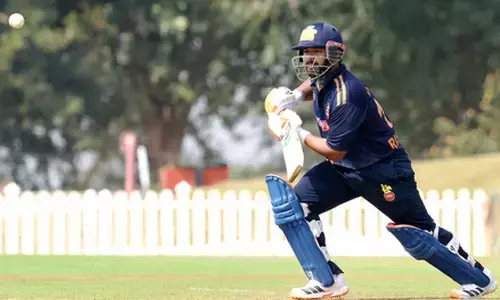A path-breaking verdict

Supreme Court (Photo/IANS)
In a significant verdict, the Supreme Court on Thursday said the daughters of a male Hindu, dying intestate, would be entitled to inherit the self-acquired and other properties obtained in the partition by the father and get preference over other collateral members of the family.
In a significant verdict, the Supreme Court on Thursday said the daughters of a male Hindu, dying intestate, would be entitled to inherit the self-acquired and other properties obtained in the partition by the father and get preference over other collateral members of the family. The judgment, which came on an appeal against the Madras High Court verdict, dealt with the property rights of Hindu women and widows under the Hindu Succession Act. Daughters' right to inheritance has always been disputed in this country despite law stipulating so.
Every time an issue of inheritance comes up, male members (and if there is no one then the deceased person's nephews etc) have always been preferring litigation to capture the properties. A legally and properly executed will that covers inheritable property usually takes precedence over next-of-kin inheritance rights. But if the deceased person left no will, their estate passes to a surviving spouse in nearly all states.
If the couple is divorced, postnuptial agreements may terminate or alter these rights. If a surviving spouse remarries, it generally does not affect their inheritance rights. In the absence of a surviving spouse, the person who is next of kin inherits the estate. The line of inheritance begins with direct offspring, starting with their children, then their grandchildren, followed by any great-grandchildren, and so on.
The legal status of stepchildren and adopted children varies by jurisdiction. If the deceased had no offspring, the line of inheritance moves upward to their parents. If the parents are no longer alive, collateral heirs (brothers, sisters, nieces, and nephews) are next in line. Keeping to rest all fallacious arguments, the Supreme Court has made it abundantly clear now that the right goes to the daughters first.
"If a property of a male Hindu dying intestate (without a will) is a self-acquired property or obtained in the partition of a coparcenary or a family property, the same would devolve by inheritance and not by survivorship, and a daughter of such a male Hindu would be entitled to inherit such property in preference to other collaterals (such as sons/daughters of brothers of deceased father)," a bench of justices S Abdul Nazeer and Krishna Murari said. The bench was dealing with the legal issue concerning the right of the daughter to inherit the self-acquired property of her father, in the absence of any other legal heir.
Justice Murari, writing the 51-page judgment for the bench, also dealt with the question of whether such property will devolve on to the daughter upon the death of her father, who died without a will, by inheritance or shall devolve on to "father's brother's son by survivorship". "Right of a widow or daughter to inherit the self-acquired property or share received in the partition of a coparcenary property of a Hindu male dying intestate is well recognised not only under the old customary Hindu Law but also by various judicial pronouncements...," the verdict said.
Referring to the legal provision, it said the legislative intent was to remedy the limitation of a Hindu woman who could not claim an absolute interest in the properties inherited by her but only had a life interest in the estate so inherited.














